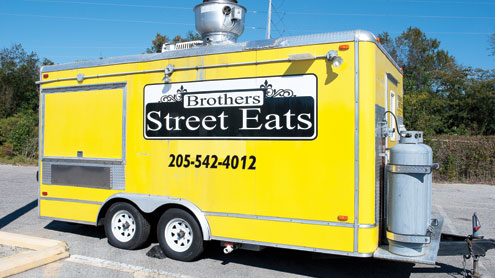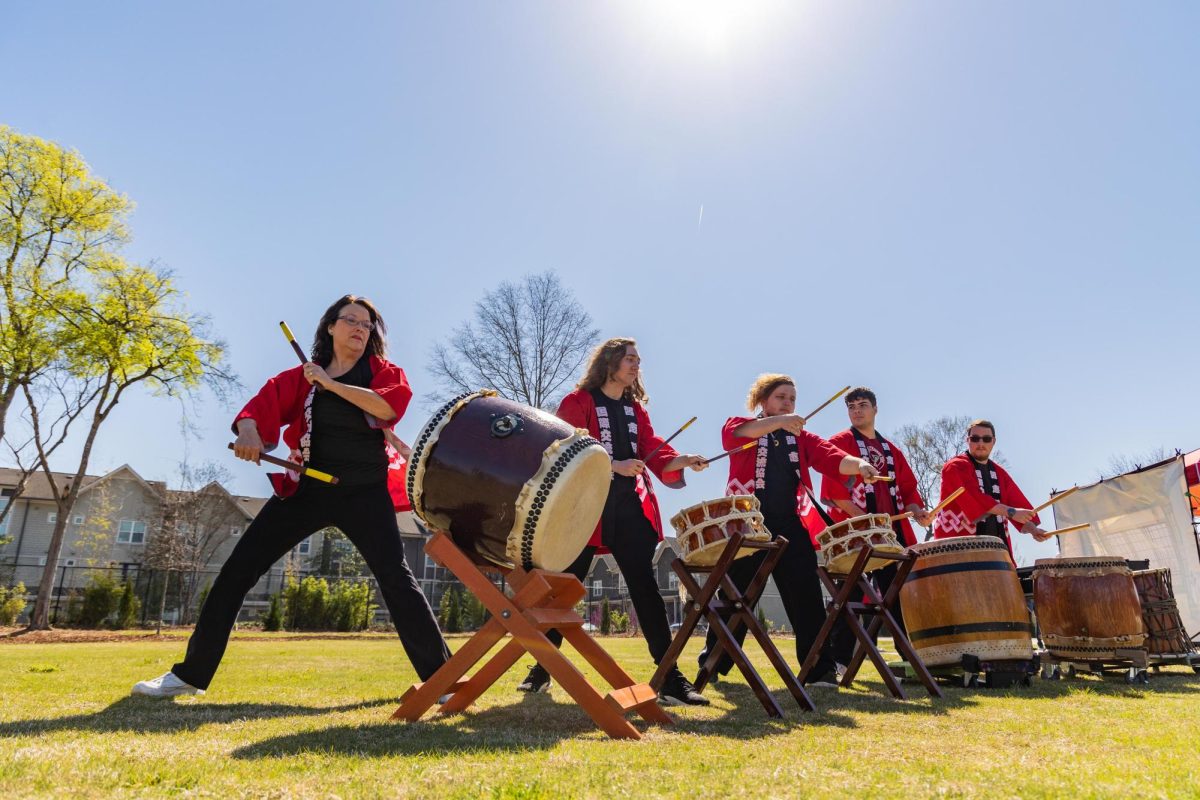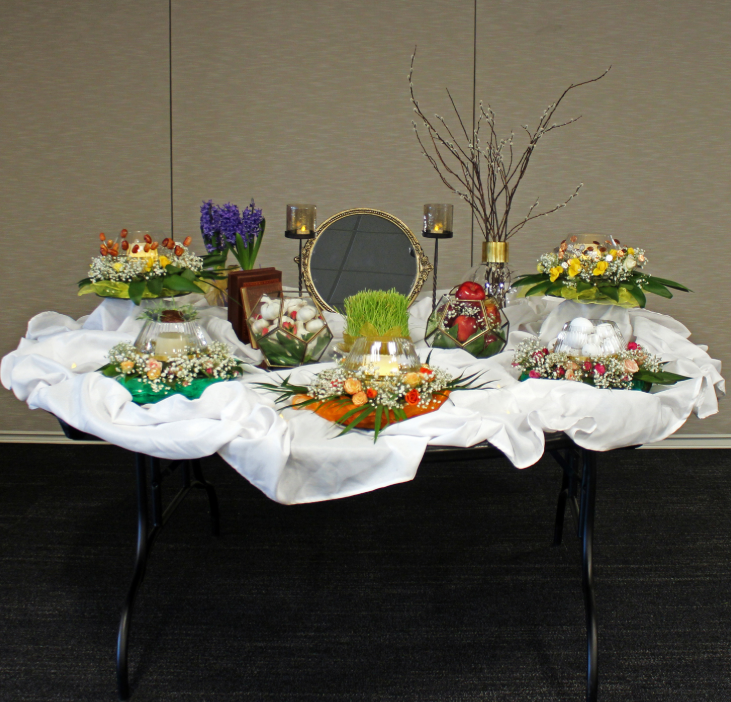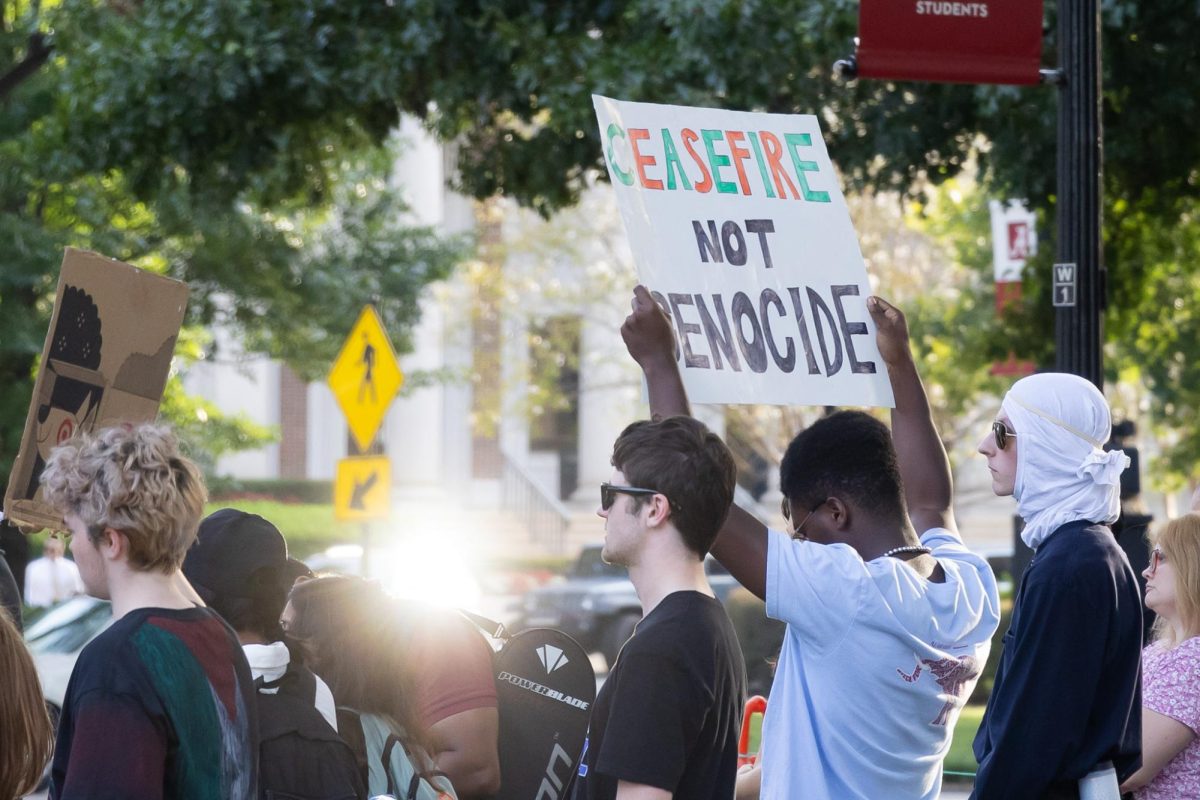 Brothers Street Eats pulled up to the Quad to serve lunch for the first time on Feb.12. On April 13, they served their last meal on campus.
Brothers Street Eats pulled up to the Quad to serve lunch for the first time on Feb.12. On April 13, they served their last meal on campus.
According to Bama Dining, they served an average of 60 to 70 customers a day, but they will no longer be allowed to serve on the Quad following complaints that their generator was too loud and disrupted classes in Graves Hall.
The University Grounds Department approached the owners of Brothers Street Eats, Craig Williams and Jordon Warren, about the complaints for the first time April 5. At that time, the generator was on the side of the trailer closest to Graves Hall. April 9, they set up the generator closer to the Quad and pulled Warren’s truck up to block the sound from the building. However, officials said this wouldn’t work as a solution because it was still too loud on the Quad side.
“UA Auxiliary Services made every effort to solve the noise problem,” said Kristina Hopton-Jones, director of University Dining Service. “We priced the generator for rent and purchase, we helped them design a sound barrier and we explored tying into the electricity on the Quad. All solutions were too expensive for the eight days of service we had left in the academic year.”
Before coming to campus, Brothers Street Eats took all the necessary steps to get its ground use permit, a process that took about a month. The restaurant also had its trailer and generator, which is a Powerhouse 9000, inspected.
“They were aware of the fact that we had to have a generator before hand,” Williams said. “We had University officials from multiple departments come and inspect the food trailer before we opened up our first week.”
Brothers Street Eats began serving on campus this semester as a trial run of how a food truck would work for Bama Dining on campus. Hopton-Jones said the testing period worked for Bama Dining because they were able to determine if they should invest in a food truck long-term without having to make the huge financial investment.
“Bama Dining is wanting to create a mobile food atmosphere within the campus,” Williams said. “We were fortunate enough to be approached by them to be a part of this.”
During their time on campus Williams and Warren thought they enjoyed success and had a good reception from the students and professors. Warren said many professors were regulars at the truck, which was parked in a location only served by Brothers and Subway.
Many students and professors who work on the right side of Graves Hall, closest to where the food truck was, said they could not hear the food truck from their offices or classrooms, but at least two professors disagreed.
“It was very distracting,” said Cynthia Sunal, a professor of education who works on the second floor of Graves Hall. “I couldn’t hold meetings in [my office] or conferences with students. I could hear it in the classroom next door, also.”
Sunal said she could recognize Brothers Street Eats’ attempts to muffle the sound over the previous week, but that it was still too loud to be outside an office building.
Jamie Blanks, a sophomore majoring in finance who works in a computer lab on the first floor of Graves Hall, said she has never heard the sounds from the generator from where she works and is sad to see them go.
“I got tired of going to Subway everyday. It was nice to go right outside instead of having to walk all the way across the Quad to Lloyd,” Blanks said. “I enjoyed it. I didn’t realize it was asked to leave.”
Other students were also sad to see Brothers Street Eats removed from campus. Cecily Harper, a senior majoring in public relations, said while the food wasn’t the greatest she’d ever had she was happy to have more variety on campus.
“I really liked it in the way they were really different from The Ferg or Lloyd,” she said. “I feel like all of the really good eat-outs that UA has, somehow the University gets ride of them. There was Doster, the top of Lakeside and other good places that students like to eat. I’m sad they got rid of something like that again.” For Warren and Williams, they were happy to form a partnership with the University they graduated from and plan to continue looking for solutions for the noise problem.
“It was almost like we came full circle with being able to go back,” Warren said. “I know we were running a business, but it almost felt like we were giving back at the same time because we were supplying a need for students that we were able to relate to.”









